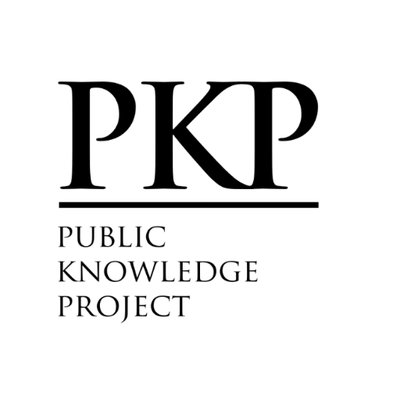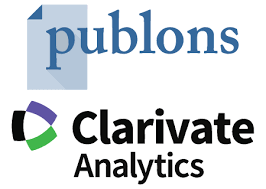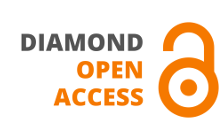Industry 4.0 and digital transformation of accounting
DOI:
https://doi.org/10.59051/joaf.v12i1.400Keywords:
Industriel 4.0, Système d'Information Comptable, NumérisationAbstract
Objective: In the study, production simulations allowing the integration of Industry 4.0 were carried out and reports were generated that would go to the accounting information system without the use of personnel.
Method: The study examined information obtained through Internet-connected devices in production, packaging and transfer units in accordance with the simulation carried out on a manufacturing company whose integration was carried out using Industry 4.0 methods.
Results: The Industry 4.0 system enables the integration of business functions and significantly improves business performance. However, the installation of this system represents high costs at the moment when it is examined in terms of software, hardware and infrastructure.
Originality: The fourth industrial revolution, called Industry 4.0, also affects the accounting function of the company and changes the job descriptions of accounting professionals. In particular, the instant creation of the recording, classification and synthesis functions thanks to the data flow provided by autonomous robots allows accounting professionals to save time in the analysis and interpretation of the reports obtained, which will significantly help decision-makers. Changing job descriptions, teaching accounting and new courses and methods should be added to the curriculum.
Downloads
References
Akdoğan Nalan, M. Uğur Akdoğan, 2018, Büyük Veri - Bılışım Teknolojısındekı Gelışmelerın Muhasebe Uygulamalarına Ve Muhasebe Mesleğıne Etkısı, Muhasebe ve Denet me Bakış, 55, 1-14.
Angay Kutluki Filiz, Adnan Dönmez, Mustafa Gülmez, Mustafa Terzioğlu, 2015, A Re-Research About Usage Of Mobile Devices In Accounting Lessons, Procedia - Social and Behavioral Sciences 197, 57 – 66.
Bartodziej, Christoph Jan, 2017, The Concept Industry 4.0, Springer Gabler, Almanya.
Banger, Gürcan, 2017, Endüstri 4.0 Ekstra, Dorlion Yayınları, Ankara
Behrad Bagheri, Hung An Kao, Lee, Jay, 2015, A Cyber-Physical Systems Architecture For Industry 4.0-Based Manufacturing Systems, Manufacturing Letters, 18-23.
Emin ve Abdulkadir Şahiner, Yürekli, Muhasebe Eğıtımı ve Endüstrı 4.0 İlışkısı, Akadem k Sosyal Araştırmalar Dergisi, 5(55), 152-162.
Esra, Kabaklarlı, 2016, Endüstri 4.0 ve Paylaşım Ekonomisi – Dünya ve Türkiye Ekonomisi için Fırsatlar, Etkiler ve Tehditler, Nobel Bilimsel Eserler, Ankara.
Fatma, Tektüfekçi, 2013, Bilişim Teknolojilerindeki Gelişmelerin Muhasebe Uygulamalarına Etkisi: E- Muhasebe, Sosyal Ve Beşeri Bilimler Dergisi, 5(2), 89-102.
Gary Pan & Poh-Sun Seow, 2016, Preparing accounting graduates for digital revolution: A critical review of information technology competencies and skills development, Journal of Education for Business, 91(3), 166-175
Gönen, Seçkin, Bilal Solak, 2017, Mal ye Bakanlığı E-Dönüşüm Sürecinin Muhasebe Meslek Mensupları Açısından Değerlendirilmesine İlişkin Bir Alan Araştırması, Muhasebe ve Fİnansman Dergİsİ , 76, 63- 80.
Gürcan, Banger, 2018, Endüstri 4.0 Uygulama ve Dönüşüm Rehberi, Dorlion Yayınları, Ankara.
Kablan, Al , 2018, Endüstrı 4.0, “Nesnelerın İnternetı” - Akıllı İşletmeler Ve Muhasebe Denetımı, Süleyman Dem rel Ün vers tes İkt sad ve İdar B l mler Fakültes Derg s , 23, 1561-1579.
Matos , L.M. Camarınha, S. Tom c, and P. Graça (Eds.), 2013, Contributing to the Internet of Things, Technological Innovation for the Internet of Things, IFIP AICT 394, Amerika.
Marica Weidenmier Watson, Janvrin, Diane J., 2017, „„Big Data”: A New Twist To Accounting, Journal Of Accounting Education, 38, 3-5.
Mustafa Gülmez, Angay Kutluki Filiz 2014, A Research About Mobile Learning Perspectives Of University Students Who Have Accounting Lessons, Procedia - Social and Behavioral Sciences 116, 291 – 297.
Nısan Nur, Çakır, 2018, Endüstrı 4.0 Ve Çalışmanın Geleceğı, Electron c Journal of Vocat onal Colleges, 8(2), 97-105.
Oktay zihni Seniye Ümit Fırat, 2017, Endüstr 4.0 Yolcuğunda Trendler ve Robotlar, İstanbul Ün vers tes İşletme Fakültesi Dergisi, 46(2), 211-223.
Ömer Faruk, 2017, Görçün,, Dördüncü Endüstri Devrimi – Endüstri 4.0, Beta Yayınları, İstanbul.
Penprase B. E. 2018, The Fourth Industrial Revolution and Higher Education. In: Gleason N. (eds) Higher Education in the Era of the Fourth Industrial Revolution. Palgrave Macmillan, Singapore.
Qin, Jian, Ying Liu, Roger Grosvenor, 2016, A Categorical Framework of Manufacturing for Industry 4.0 and Beyond, Procedia CIRP 52, 173 – 178.
Seniye Ümit, Oktay zihni Fırat, 2017, Sanay 4.0 Devr m Üzer ne Karşılaştırmalı B r İnceleme: Kavramlar, Küresel Gel şmeler ve Türk ye, Toprak İşveren Derg s , 114, 10-23.
Sledgianowski, Deb, Mohamed Gomaa, Christine Tan, 2017, Toward Integration Of Big Data, Technology And Information Systems Competencies Into The Accounting Curriculum, Journal of Accounting Education, 38, 81-93
Tanyer, Mete Türkyılmaz, Ergüden, Engin, Can Tansel Kaya, Begüm, 2018, Endüstrı 4.0‟ın Getırdığı Devrımsel Değışımler Işığında Muhasebe Sıstemlerının Yenıden Yapılandırılması, Muhasebe ve Denetime Bakış, 54, 139-148.
Tektüfekçi Fatma, 2013, Bilgi Teknolojileri Destekli Elektronik Muhasebe Uygulamalarına Bütüncül Bir Yaklaşım, Organizasyon Ve Yönetim Bilimleri Dergisi, 5(2), 79-90.
Witkowski, Krzysztof, 2017, Internet of Things, Big Data, Industry 4.0 – Innovative Solutions in Logistics and Supply Chains Management, Procedia Engineering, 182, 763 – 769
Yürekli, Emin, Seçkin Gönen, Abdulkadr Şahiner, E-Fatura Uygulamasına İlışkın Bır Değerlendırme, Akademik ve Sosyal Araştırmalar Dergisi, 4(35), 290-302
Downloads
Published
How to Cite
Issue
Section
License
Copyright (c) 2021 Moustapha ABAKAR MOUSSA

This work is licensed under a Creative Commons Attribution-NonCommercial-NoDerivatives 4.0 International License.
Authors who publish with this journal agree to the following terms:
- Authors retain copyright and grant the journal right of first publication with the work simultaneously licensed under a Creative Commons Attribution License that allows others to share the work with an acknowledgement of the work's authorship and initial publication in this journal.
- Authors are able to enter into separate, additional contractual arrangements for the non-exclusive distribution of the journal's published version of the work (e.g., post it to an institutional repository or publish it in a book), with an acknowledgement of its initial publication in this journal.
- Authors are permitted and encouraged to post their work online (e.g., in institutional repositories or on their website) prior to and during the submission process, as it can lead to productive exchanges, as well as earlier and greater citation of published work (See The Effect of Open Access).






















